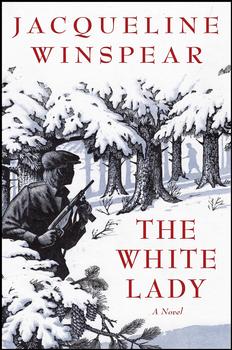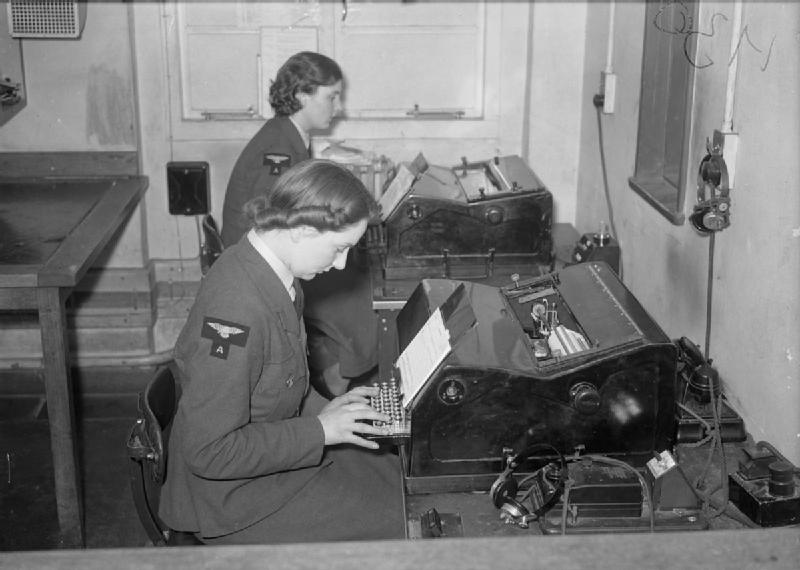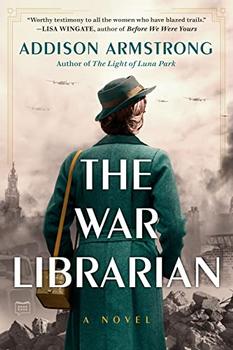Summary | Excerpt | Reviews | Beyond the book | Read-Alikes | Genres & Themes | Author Bio

A Novel
by Jacqueline WinspearThe White Lady introduces yet another extraordinary heroine from Jacqueline Winspear, creator of the best-selling Maisie Dobbs series. This heart-stopping novel, set in Post WWII Britain in 1947, follows the coming of age and maturity of former wartime operative Elinor White—veteran of two wars, trained killer, protective of her anonymity—when she is drawn back into the world of menace she has been desperate to leave behind.
A reluctant ex-spy with demons of her own, Elinor finds herself facing down one of the most dangerous organized crime gangs in London, ultimately exposing corruption from Scotland Yard to the highest levels of government.
The private, quiet "Miss White" as Elinor is known, lives in a village in rural Kent, England, and to her fellow villagers seems something of an enigma. Well she might, as Elinor occupies a "grace and favor" property, a rare privilege offered to faithful servants of the Crown for services to the nation. But the residents of Shacklehurst have no way of knowing how dangerous Elinor's war work had been, or that their mysterious neighbor is haunted by her past.
It will take Susie, the child of a young farmworker, Jim Mackie and his wife, Rose, to break through Miss White's icy demeanor—but Jim has something in common with Elinor. He, too, is desperate to escape his past. When the powerful Mackie crime family demands a return of their prodigal son for an important job, Elinor assumes the task of protecting her neighbors, especially the bright-eyed Susie. Yet in her quest to uncover the truth behind the family's pursuit of Jim, Elinor unwittingly sets out on a treacherous path—yet it is one that leads to her freedom.
While some fans may be delighted with a chance to enjoy a variation on Winspear's well-regarded heroine, others may view it more with a sense of "been there, done that." Regardless, The White Lady features rich historical fiction and an intriguing protagonist. This fast-moving novel is sure to be a hit with many, and is recommended for most audiences, particularly those who enjoy books about the war years. It's sure to attract new fans to Winspear's works and would also make a good book group selection...continued
Full Review
(597 words)
This review is available to non-members for a limited time. For full access,
become a member today.
(Reviewed by Kim Kovacs).
 Jacquelin Winspear's heroine, Elinor White, was a member of the First Aid Nursing Yeomanry (FANY) during the Second World War, one of several British organizations in which women enlisted to aid the war effort.
Jacquelin Winspear's heroine, Elinor White, was a member of the First Aid Nursing Yeomanry (FANY) during the Second World War, one of several British organizations in which women enlisted to aid the war effort.
When war broke out in 1939, millions of men left the workforce in Great Britain to enlist, leaving behind their wives, sisters, and mothers to manage the home front. It soon became apparent, however, that Britain needed these women to fill the newly vacant positions, and the government started a campaign to encourage women to take jobs outside the home. Many heeded the call, but the numbers didn't come close to filling the void.
Consequently, in 1941, the British government passed the National Service Act legalizing the ...
This "beyond the book" feature is available to non-members for a limited time. Join today for full access.

If you liked The White Lady, try these:

by Kristin Hannah
Published 2024
From master storyteller Kristin Hannah, #1 New York Times bestselling author of The Nightingale and The Four Winds, comes the story of a turbulent, transformative era in America: the 1960s.

by Addison Armstrong
Published 2022
The Paris Library meets The Flight Girls in this captivating historical novel about the sacrifice and courage necessary to live a life of honor, inspired by the first female volunteer librarians during World War I and the first women accepted into the U.S. Naval Academy.
On the whole, human beings want to be good, but not too good and not quite all the time
Click Here to find out who said this, as well as discovering other famous literary quotes!